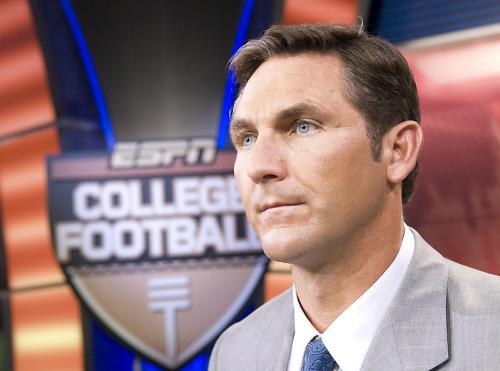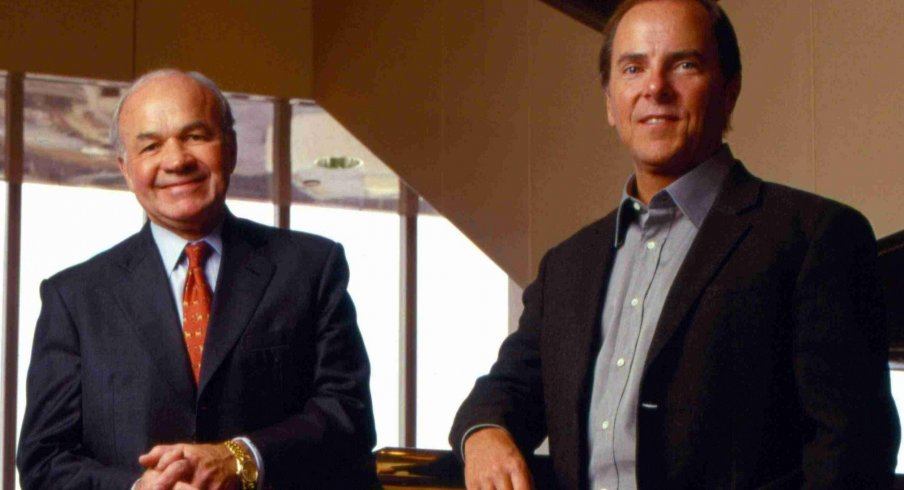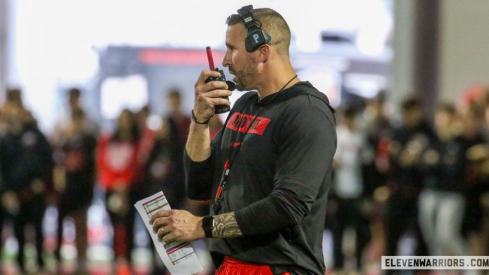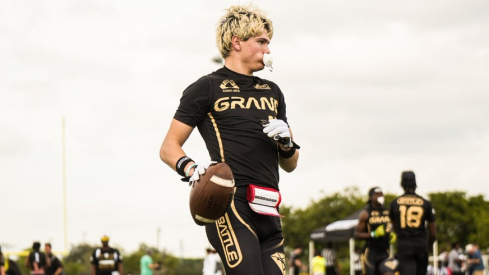You might not realize it, but all of us at 11W are full-time professionals whose real, day job expertise occasionally bleeds into our fake, part-time expertise here. This is going to be one of those times. Relax; it will be over in four very short paragraphs.
Now begins your 30-second MBA: All corporations have the same primary goal and that is the maximization of shareholder wealth. Whether the company sells bird seed or back rubs, that is why the company exists, period.
Often times there are conflicts between management and the shareholders because occasionally the managers' prudent stewardship of the corporation does not always overlap with that maximization of shareholder wealth.
This is called the Agency Problem. It happens all of the time, even where you work. The problem typically involves risk-taking, short-term vs. long-term thinking, ethics and the environment to name just a few of the common ones.
Shareholder wealth maximization is expected to occur under the umbrella of social responsibility. The two do not have to be mutually exclusive, nor should they be for any corporation - whether it sells bird seed, back rubs or is the Worldwide Leader in Sports.
Congratulations, your 30-second MBA is over.
Late last month Kelly McBride of The Poynter Institute, which has been masquerading as ESPN's independent ombudsman as of late recapped ESPN's scorching conflict of interest in college football realignment. She closed her rambling piece (if even I think you're rambling...dude) with the following laugher:
As long as ESPN maintains its journalistic standards and increases reporting resources devoted to college sports -- even as its business interests in colleges grows -- the network should assuage most of its understandably skeptical critics.
It's an absolutely breathtaking statement coming from a think-tank that is allegedly, you know, actually watching the network it is supposed to be independently reviewing and critiquing.
There isn't too much mystery about what comprises ESPN's journalistic standards: It's an entertainment company that contains an inappropriately-named news division which operates solely on the premise of delivering the content that will generate the highest traffic.
The higher the traffic, the more lucrative the contracts, the advertising and the corporate partnerships are. And they have been lucrative: ESPN is now worth about $25 billion.
This is why the New York Yankees and the Boston Red Sox were routinely discussed on ESPN throughout the Major League Baseball playoffs despite the Yankees' early elimination and Boston's failure to even reach the postseason. That was ESPN's overt attempt to keep its biggest baseball markets engaged even though its teams were already on vacation.
ESPN's coverage of Ohio State's troubles went so far beyond story coverage it actually manufactured additional content to fulfill its Tatgate narrative.
From a college football standpoint, ESPN eschewed journalistic standards the very second it began selectively investing in some of the entities that it participate in its content.
The University of Texas has a 20-year deal with ESPN worth $300 million, which means the network now has a vested interest in Texas being both interesting and relevant. Let's say that a Tatgate-like scandal occurs in Austin: What is the likelihood that ESPN will inundate UT with Public Records Requests, constant coverage and sensationalism, and ultimately - a lawsuit to seek more information?
Doing so could violate the most important tenet of maximizing shareholder wealth. A weakened Texas athletic department siphons value from ESPN's business investment. Its news organization does not operate autonomously, regardless of whether there is a direct business benefit to doing so.
Consider its Tatgate coverage: Ohio State is second to Texas in football revenues, which means that it garners a lot of attention. ESPN's coverage of Ohio State's troubles went so far beyond story coverage that it actually ventured into the full manufacturing of additional content to fulfill its Tatgate narrative.
In July, Ohio State and the NCAA released the transcript of the investigators' interview with Jim Tressel. The university's hearing with the NCAA Committee on Infractions was August 12.
Examining other recent COI hearings - Boise State, Tennessee, UConn - each school received its verdict in 12 weeks following their hearings.
So that's why it was interesting that exactly 12 weeks after Ohio State's COI hearing, ESPN suddenly began promoting a pre-packaged exclusive Jim Tressel NCAA interview audio (audio of a transcript that had been publicly available for over three months) to create a bigger splash for what should have been the COI's judgment for the Buckeye football program.
It wasn't bias against Ohio State. It was bias for ESPN shareholders, who benefit from getting the most traffic out of what would have been regularly reported news to a news organization committed to credibility.
Unfortunately for ESPN, Terrelle Pryor's disclosure of Bobby DiGeronimo's cash-filled envelopes screwed up the timing and delayed the decision. Normally COI findings comprise a fairly procedural news story.
Oregon head coach Chip Kelly and UConn basketball coach Jim Calhoun were both recently interviewed by NCAA investigators regarding violations at their schools that involved both of them. Both men also happen to star in current ESPN commercials.
Try and imagine "exclusive" audio tapes of those interviews making it to ESPN along with unscientific analysis of either man's voice inflection, which is what ESPN had accompanying Tressel's rehashed nine-month old interview.
There is zero conflict of interest for ESPN's business to cover Ohio State the way that it has. For Texas, however, there would be. Not only can't ESPN be reasonably expected to objectively cover Texas sports, it isn't even allowed to: It's actually written into the Longhorn Network contract.
ESPN has firm control of the sports media in America, and now - contractually - Texas controls ESPN's content through its own network. This essentially means that Texas controls the news about Texas, and objectivity has been eliminated.
So McBride's assertion that ESPN 1) even has journalistic standards and 2) is maintaining them in a way that might appease its critics is complete nonsense. It's predicated on the idea that the public at large is completely uninformed or willfully ignorant to how ESPN operates as a journalistic entity.
Not only that, but the network is now deliberately making sure that its news operations are kept private. ESPN is no longer allowing its reporters to write books that include information they're privy to through ESPN.
Remember what happened with Bruce Feldman, Mike Leach and Craig James? This abrupt change in policy is intended to make sure that never happens again.
 James hired a PR firm and worked with ESPN producers to manufacture scandal at Texas Tech
James hired a PR firm and worked with ESPN producers to manufacture scandal at Texas Tech
And speaking of James, who used his position at ESPN to inflate and manipulate facts that ultimately led to Leach's dismissal from Texas Tech: He is still, somehow, employed by ESPN.
Remember - according to its appointed watchdog, the Poynter Institute, ESPN is maintaining its journalistic standards to assuage its critics.
Also employed by ESPN is noted spousal abuse advocate Bob Ryan, who on yesterday's edition of The Sports Reporters tried to favorably contrast how Penn State handled Jerry Sandusky against Tressel's cover-up at Ohio State, since serial child rape and discounted tattoos carry equal severity.
With ESPN's pitiful track record of journalistic integrity and its contractual control over the vast majority of college football's programming content, what could possibly go wrong if the network is, in fact, pulling the realignment strings behind the scenes?
The trickle-down implications are enormous. With ESPN playing God with college football, the institutions now answer to a corporation. Universities will make strategic decisions based on the encouragement from a media conglomerate.
It's already happening: Boston College's athletic director accidentally disclosed that ESPN advised the ACC on which schools to invite for membership. When millions of eyebrows immediately shot skyward, he lied and said he misspoke (how do you "accidentally" say that?)
It makes perfect business sense for ESPN to shape the college football landscape: By optimizing matchups and minimizing the potential for unfavorable bowl pairings to artificially manufacture the most interesting games possible, ratings, ticket sales and ad revenue stand to benefit.
This is the maximization of shareholder wealth without the dreaded Agency Problem, with the managers and the shareholders are in cahoots with each other. Quick addendum to your 30-second MBA: ESPN has constructed a classic monopoly over a multi-billion dollar industry.
It's in the math: There are 35 bowl games this season. ESPN owns almost 20% of all bowl games (not owns the broadcasting rights; actually owns) while having the broadcasting rights to 33 of them.
So the BCS coffers are now solidly in second place: Nobody is more invested in the bowl system than ESPN.
This means ESPN owns 95% of a college football postseason that is predetermined by matchups, not by a tournament, not by randomization and often times, not by merit but by potential television and stadium audience (cough cough cough Notre Dame cough).
The involvement and investment are so deep that when ESPN is covering college football, ESPN is often actually covering...itself. It's inability to recuse James from the Texas Tech story was a low point in major sports journalism history.
But as you already probably realize, ESPN doesn't need monopoly to integrate itself into a story; it has been full-on meta for years. This is the humorous side of that journalistic integrity that McBride referred to.
Consider its coverage of Tim Tebow, who has been thrust - by ESPN, almost exclusively - into conversations on all of its platforms: Each of its television networks, radio programs, Internet content and social networking sites frequently have Tebow on the marquee.
It makes perfect business sense for ESPN to shape the college football landscape.
Tebow is mentioned in stories and in discussions that do not involve quarterbacks, the Denver Broncos, or sometimes - not even football. "Tebow" has even been its own category on ESPN's bottom-line screen crawl numerous times, along with topics like "World Series," "NFL" and "NBA labor dispute."
The punchline arrived a couple of days ago when Sportscenter asked the following question of its audience, with a straight face: Is Tim Tebow overhyped?
Basically it comes down to this: ESPN already owns the rights to the most lucrative cash engine for major universities and expects the public to believe that it will idly stand on the sidelines while the landscape of college football is reshaped by conference alignments that affect multiple billions of dollars in that engine.
For a company whose VP and director of news, Vince Doria, openly admits that ESPN is the largest conflict of interest known to man, that amounts to a wink, a nod and a promise that it cannot possibly keep without betraying its shareholders.
The maximization of wealth is ESPN's first priority, which it will fail to accomplish by standing on the sideline in the conference realignment frenzy that it is helping accelerate.
The social responsibility aspect and conflict of interest is being self-policed, and very poorly. The Poynter Institute making a mockery of its role as ombudsman serves as further evidence that ESPN is now far beyond just being a broadcasting partner in college football in scope. It is college football.
You'll know that its mission is complete when college football's already disingenuous postseason becomes an even bigger charade as ESPN overtly chooses the optimal television matchups for BCS games. And it will happen with everyone watching.


